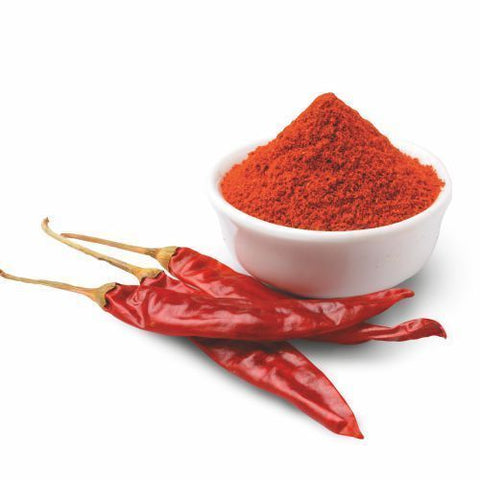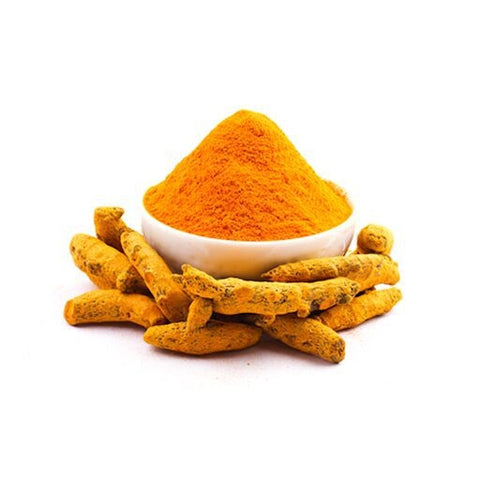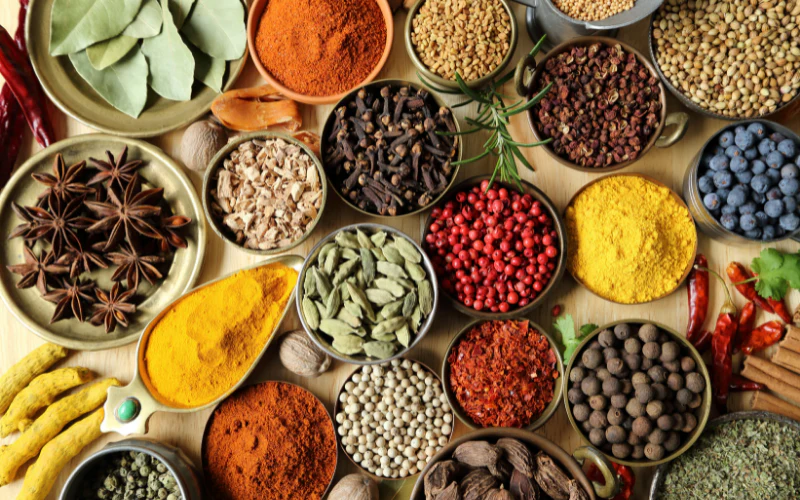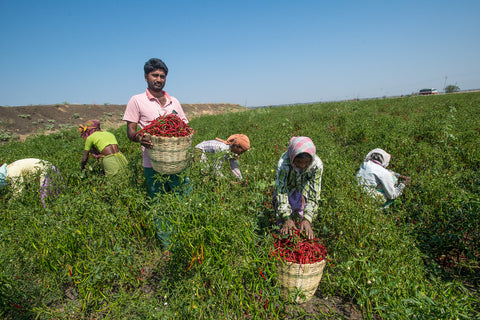
MAHADEV EXPORTS
Menu

Indian spices are not just used for their unique flavours and aromas but also for their medicinal properties. For example, turmeric is known for its anti-inflammatory and antioxidant properties, while cumin aids digestion. These spices are also used to balance the body’s doshas in Ayurvedic medicine, a traditional system of medicine in India.
In India, the use of spices varies across different regions, with each region having its unique blend of spices. Spices play a significant role in defining the flavours of Indian cuisine, with dishes ranging from mild to extremely spicy. Spices are used in different forms, including whole, ground, or paste, to enhance the taste and aroma of dishes.
Indian households store their spices in the ‘Masala Box’ or ‘Namakdani’, which usually are wooden or made of stainless steel. This box has multiple compartments to store different spices, making accessing them convenient while cooking. The Indian Masala Box is an essential component of Indian cooking, with each household having their unique blend of spices that they use in their dishes.




Growing and harvesting Indian spices has changed significantly over years, with technology playing an increasingly important role. Although spice cultivation in India is still primarily carried out on small farms, many farmers have embraced modern techniques to improve their yields and productivity.
One such advancement is drip irrigation, which helps conserve water and ensures that plants receive consistent moisture. Greenhouse cultivation is another technique that has gained popularity in recent years, as it allows farmers to grow spices in a controlled environment with optimal conditions for growth. Precision farming, which involves using data and analytics to make informed decisions about crop management, is also being adopted by some spice farmers in India.
Despite these technological advancements, spice cultivation in India remains a labour-intensive process, with much of the work still done by hand. Harvesting is typically done by hand, and the spices are dried and processed before being sold.

How do Indian spices affect the body and overall health?
Indian spices have been used for centuries to enhance the taste and flavour of food and their various health benefits. Here are some of how Indian spices can affect the body and overall health:
Indian spices have a long and diverse history, significantly shaping India’s economy and culture. With their unique flavours, aromas, and medicinal properties, Indian spices are an essential part of not only Indian cuisine but also international cuisine. Despite facing challenges, the Indian spice industry continues to grow and adapt, ensuring the continued availability of these valuable ingredients for generations to come.
WhatsApp us